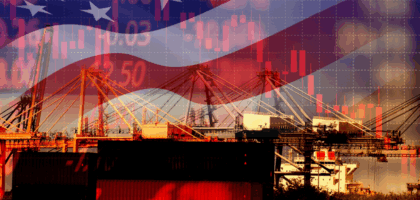There are myths involved in every facet of the world. Whether you work within the logistics and transportation industry, are involved in the supply chain side of your company, or have never coordinated a shipment in your life, you may have heard some of these common supply chain misconceptions. We’ll put an end to these made-up myths, once and for all.
Myth #1: Cutting costs will make your supply chain more efficient.
This seems to be a common misconception that just won’t go away: the more you reduce your supply chain costs, the more efficient it will become, thus saving you more money as a result. This couldn’t be further from the truth and is actually quite the opposite. In fact, your supply chain may be one place where increasing costs makes sense.
We’ve all heard the old adage, “you get what you pay for,” and that certainly applies here. If you increase your supply chain spend, you may reduce overall issues and increase your profits. Many people get caught up in the short-term benefits of cutting costs, but it’s really the long-term strategy that matters the most.
Myth #2: Rely on data over people when it comes to supply chain management.
Data is super important when it comes to making well-informed decisions for your supply chain. But, to rely on data alone will cause more problems than solutions. Data doesn’t tell you the entire story, and if you don’t know what you’re looking at, well…then the data really doesn’t do much to help, does it?
When something just doesn’t seem to be going right, a good supply chain professional knows to ask more questions regarding the data and what is happening behind the scenes. Data cannot paint the entire picture of a lagging or disrupted supply chain. Perhaps there are human inefficiencies occurring at home base, a carrier went out of business, or a natural disaster forced a route change along the way. These types of occurrences cannot be determined with data alone.
Myth #3: Automation in your supply chain is better than humans.
Again, discrediting the importance of people in the supply chain can really do some damage. Yes, technology has made massive strides over the past years, but to rely solely on automatic robots is not the best idea. Automation definitely has its pros over humans, including efficiency and quickness, but unlike humans, automation lacks in adaptation and flexibility. This, in turn, decreases the effectiveness of your supply chain.
Automated facilities are great at doing the same thing over and over again—robots can be programmed to do the same recurring pattern. But, if an order becomes too complex or it requires some sort of flexible component, any automated facility is bound to fail in this regard. In the end, complexity can certainly confuse people, but unlike robots, they can figure out their way through a supply chain problem, and if they can’t, they can at least ask for help or advice.
Resources:
- Supply Chain Myths—Busted (Inbound Logistics)
- Supply Chain Management Myths and the Truth Behind Them (Argentus)
- Common Myths About the Global Supply Chain (Jabil)



